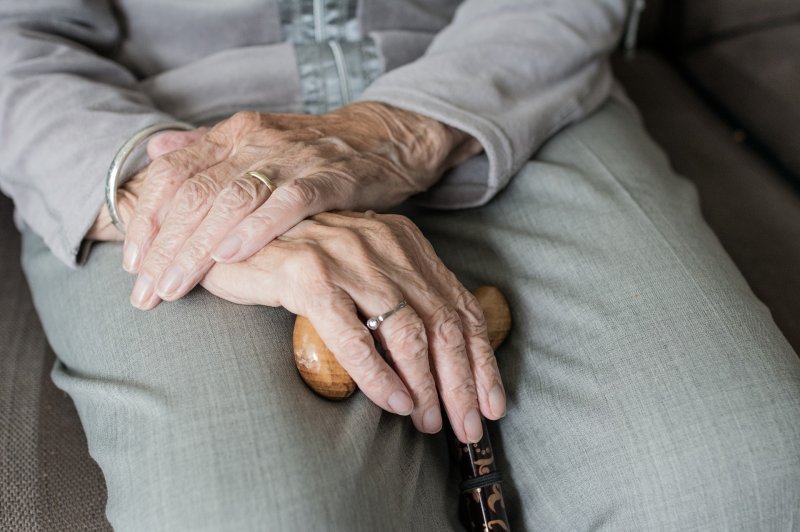Many older adults with depression say they won't seek treatment, a new survey has found. Photo by
Sabine van Erp/Pixabay
Nov. 16 (UPI) -- More than 60% of seniors with depression in the United States won't seek treatment for their condition, according to the results of a nationwide survey released Monday by genetic testing company Myriad Neuroscience.
One-third of surveyed adults 65 and older believe they can "snap out" of it on their own, without counseling, drug therapy or other forms of treatment, the data showed.
"Many older Americans think that admitting they are struggling with depression and anxiety is a sign of weakness," Dr. Mark Pollack told UPI.
"This is a problem, especially now when the isolation, fear and sadness associated with the pandemic is having an enormous impact on the mental health of older Americans," said Pollack, chief medical officer of Mason, Ohio-based Myriad Neuroscience.
Myriad Neuroscience conducted an online survey of nearly 1,500 adults age 65 and older and 650 adults age 18 and older, across the United States between Aug. 12 and Sept. 27.
Among the 1,500 seniors who responded, 61% acknowledged that they are concerned they might have depression, but would not seek treatment because "my issues aren't that bad," the data showed.
In addition, 39% felt they could manage their symptoms by themselves, without a doctor's help, while 35% indicated they didn't want to be on medication for the condition.
Among the older respondents, 30% described depression as a normal part of aging, while one in three said the symptoms affected aspects of their lives and one in four said the condition impact their overall health.
Of all respondents, 44% of men and 21% of women described depression as a normal part of aging.
Myriad Neurosciences manufacturers the GeneSight, a genetic test designed to identify potential gene-drug interactions for depression medications and is used by doctors to help assist with medication selection.
"Mental health issues like depression and anxiety should be addressed the same way as physical illness," Pollack said.
"People seek treatment for conditions like heart disease, high blood pressure or diabetes and depression should be no different," he said.















